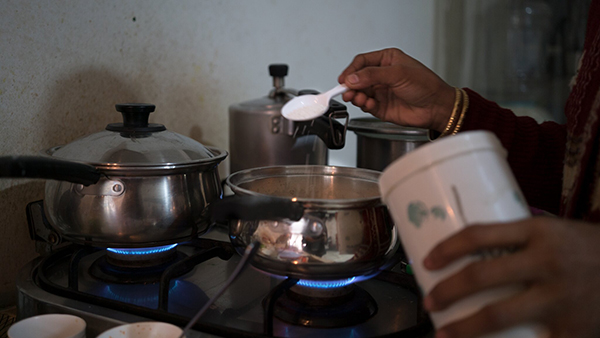This article was published more than 5 years ago.
This article is part of a series featuring inspiring stories of local action #fromthefrontlines of COVID-19 in the Global South. For more, visit our COVID-19 page and follow us on Facebook and Twitter.
A housekeeper working six days a week in India earns only about $150 a month, but these wages keep her and family fed. So, when the country went on complete lockdown three months ago to curb the spread of COVID-19, the loss of jobs and salaries dealt a catastrophic blow to many of the estimated 4 million domestic workers across India.
The women and girls who compose a vital part of the country’s informal labor sector are largely invisible. Domestic workers perform housekeeping, cooking, and other duties for middle and upper-class households throughout the country, often for meager wages and with few protections around working conditions.

For domestic laborers in India’s Madhya Pradesh state unable to continue working during the pandemic, the Fund-backed SEWA MP (Mahila Shram Sewa Nyas) has been a vital resource. SEWA supports the rights of women working in virtually every rural and urban area of Madhya Pradesh, including domestic laborers. Since the country’s lockdown began in late March, it has helped connect the workers with income, new roles, and health resources.
SEWA even stepped in to negotiate with employers, getting more than 200 to pay 50 percent of the workers’ wages or food rations. It coordinated with other local groups and distributed cooked meals to more than 3,600 domestic workers. And it helped more than 850 cooks secure new employment with agencies and organizations feeding essential workers and those in need.
For SEWA, this has been a natural and critical extension of their core work, which is to provide women laborers with training and community organizing support to help them claim their rights to fair wages, healthcare, pensions, clean water, and sanitation. It continues to advocate at the state and national levels for the workers’ rights and well-being and increased employment opportunities in relief efforts.
The Fund has supported SEWA MP for 12 years with core funding and strategic support. We’re proud to stand with them and all grassroots organizations ensuring that workers’ rights and lives are respected and protected, during and after the pandemic.
Header photo credit: ILO/J. Urmila 2018


